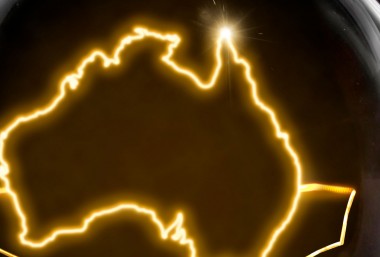The Registrar of Trade Marks in Australia has handed down her decision in the case brought by Thunder Road Brewery (a local Australian brewery) to have 54 trade mark registrations belonging to Carlton United Brewery (CUB) removed from the register of trade marks due to non-use.
Thunder Road Brewery argued that CUB had not made any genuine attempt to commercially use their beer brands in question on beer during the statutory three year period, and as a result, all of the registrations vulnerable under the legislation should be revoked.
CUB argued that the brands were all "heritage brands" and that they formed part of the Australian beer history due to their long lifespan in Australia. Most had been used since as early as the 1880's, and while it was correct to say that they had not been used on beer in Australia over a recent three year period, the decision favoured CUB in relation to the majority of the brands under attack.
The favourable decision for CUB centres on the wording of the Australian Trade Marks Act in relation to a case for removal of a trade mark registration where non-use is claimed.
The Act says that where non-use is claimed in a removal action, then the Registrar may decide to remove the trade mark from the register in respect of any or all of the goods to which the application for removal relates.
The important word here is may. The word "may" invokes the Registrar's discretion to allow a trade mark to remain on the register even if the grounds on which the removal action was made have been established. The discretion may be exercised if the Registrar is satisfied that it is reasonable to do so. The word "reasonable" gives added discretion to the Registrar.
In this case, even CUB's evidence could not substantiate that all the trade marks subject to the removal action had been used within the relevant period.
CUB's evidence of use at best showed that it had not actually abandoned its trade marks because it still retained a residual reputation in the majority of trade mark registrations under attack.
Also, the evidence showed that CUB had a residual reputation in the majority of its trade marks not only through the continuing visibility of the trade marks in question in Australian pubs, hotels, breweries, bottle shops, websites, social media, museums, private collections, artworks, and second-hand trades, but also through the simple fact of their long lifespan in Australia.
These were some of the factors that allowed the Registrar to exercise her discretion favourably to CUB. 41 of the 54 trade mark registrations were allowed to remain on the register by virtue of the Registrar's discretion.
Thunder Road Brewery could claim a "partial victory" due to 13 of the trade marks in question being removed for non-use, and not being subject to a favourable exercise of the Registrar's discretion.
What should trade mark owners do to avoid a non-use removal action?
To avoid an attack on a trade mark owner's trade mark registration, the owner should preferably make some commercial bona fide use of its trade mark in the course of trade on the goods for which it is registered.
However, where the use is deemed "token use" by virtue of the evidence shown, then the Registrar is likely to exercise his/her discretion adversely to the owner. Token use which is designed to simply defeat a removal action for non-use, will not carry the day.
In the event of non-use over the relevant three year period, the owner will have to establish as a fact evidence along the same lines as shown in the above case, and the strongest of these would be residual reputation showing that the mark's reputation and goodwill has continued long after the last use took place.
The situation in New Zealand
This is the law in Australia, but what about New Zealand? Would the same defence of "residual reputation" apply in New Zealand, or would it be a case of "use it or lose it"?
The Trade Marks Act in New Zealand provides the Commissioner of Trade Marks with a similar discretion to revoke a trade mark registration on the basis of non-use.
However, in reported cases to date, the Commissioner has refused to exercise the discretion where residual reputation alone has been argued as grounds for defeating a revocation action.
This makes it uncertain in New Zealand that a strong residual reputation as in the Australian case above would be enough to save the registered trade mark from being revoked.
So, to be on the safe side, it is best to ensure that, as a trade mark owner, you make commercial use of your trade mark, or else you run the risk of losing the trade mark registration, and the exclusive right to the continued and future use of that name.




